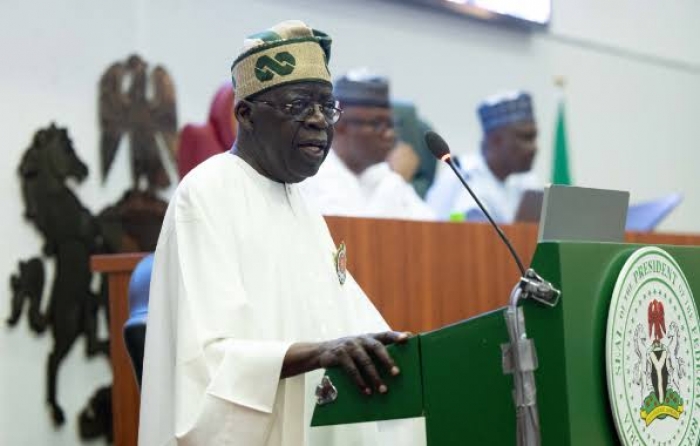Nigeria’s fiscal deficit continues to swell, with recent figures showing a budget deficit of 7.6% of GDP as of August 2024, outpacing the approved 3.8% target for the year.
This was revealed in the personal statements of Central Bank of Nigeria (CBN) Monetary Policy Committee (MPC) members, who voiced concern over the growing gap between revenue generation and spending.
At the start of 2024, the National Assembly approved a budget of N28.7 trillion with a revenue target of N19.5 trillion, leaving a budget deficit forecast of N9.1 trillion equivalent to about 3.8% of GDP.
However, the deficit has surged well beyond projections, with a supplementary budget of N6.2 trillion proposed later in the year, compounding the fiscal strain.
What they are saying
According to MPC member Aloysius Uche Ordu, Nigeria’s revenue collection significantly underperformed, reaching only 37.9% of the year’s target in the first half of 2024.
- This shortfall was attributed largely to deficits in the Federation Accounts Allocation Committee (FAAC) receipts, which hindered the federal government’s ability to meet its financial obligations.
- Despite a reported 33.31% improvement in retained revenue from January to June compared to the same period in 2023, overall revenue still fell 62.1% short of its target, a gap that highlights the country’s fiscal challenges.
MPC member Lamido Yuguda also highlighted the consequences of Nigeria’s low revenue base, stressing that it underpins the weak fiscal performance in the first half of the year.
- Provisional numbers indicate that the fiscal deficit already was 91.94% of the full-year target as of June, raising questions about how the federal government would finance the remaining budgeted expenditure without further widening the deficit.
Aloysius Uche Ordu emphasized that Nigeria’s spending priorities leaned heavily toward recurrent expenditures, driven primarily by debt servicing costs.
- Meanwhile, capital expenditure, a critical area for economic growth and development, continued to lag.
- The excess spending on recurrent needs has been compounded by a reluctance to reprioritize resources in favour of capital projects that could drive longer-term economic improvements.
CBN MPC member Muhammad Sani Abdullahi reiterated the importance of a proactive monetary policy in countering the fiscal deficit’s potential repercussions, especially as discussions on implementing a new minimum wage gain traction.
- He noted that while the deficit currently hovers at 7.6% of GDP, efforts to bolster revenue generation and trim government spending could gradually stabilize Nigeria’s fiscal outlook.
- A narrowing deficit, Abdullahi stressed, would support macroeconomic stability and relieve some of the pressures currently weighing on the economy.
While members of the MPC acknowledged that the fiscal authority has shown restraint by not resorting to the Central Bank’s Ways & Means financing, concerns remain over how long the government can sustain this stance amid revenue shortfalls and mounting obligations.
The committee noted that heavy reliance on FAAC distributions affects liquidity levels within the banking sector, subsequently impacting the naira exchange rate.
The external sector faring better
In contrast to Nigeria’s worsening fiscal situation, developments in the external sector offered a glimmer of optimism.
- A decline in import bills, attributed to the CBN’s tight monetary stance, resulted in a balance of payments surplus of $2.47 billion for the period.
- External reserves climbed to $37.44 billion as of September 2024, offering over seven months of import cover.
- By November, reserves had grown further to $40 billion, a milestone that signals resilience in Nigeria’s foreign exchange holdings amid domestic fiscal strain.
- The naira also recorded a slight appreciation, bolstered by improved reserves and reduced import demand.
Implications for policy and market stability
The fiscal challenges Nigeria faces highlight a structural issue in the country’s financial framework, primarily driven by revenue volatility and expenditure imbalances.
- While external reserves and the balance of payments position provide a buffer, the domestic fiscal environment remains precarious.
- The MPC’s ongoing commitment to maintaining a tight monetary policy has helped curb import demand and limit external shocks to some extent.
- However, sustained fiscal deficits could undermine these efforts if the federal government fails to enhance revenue generation and exercise spending discipline.
Nairametrics































































